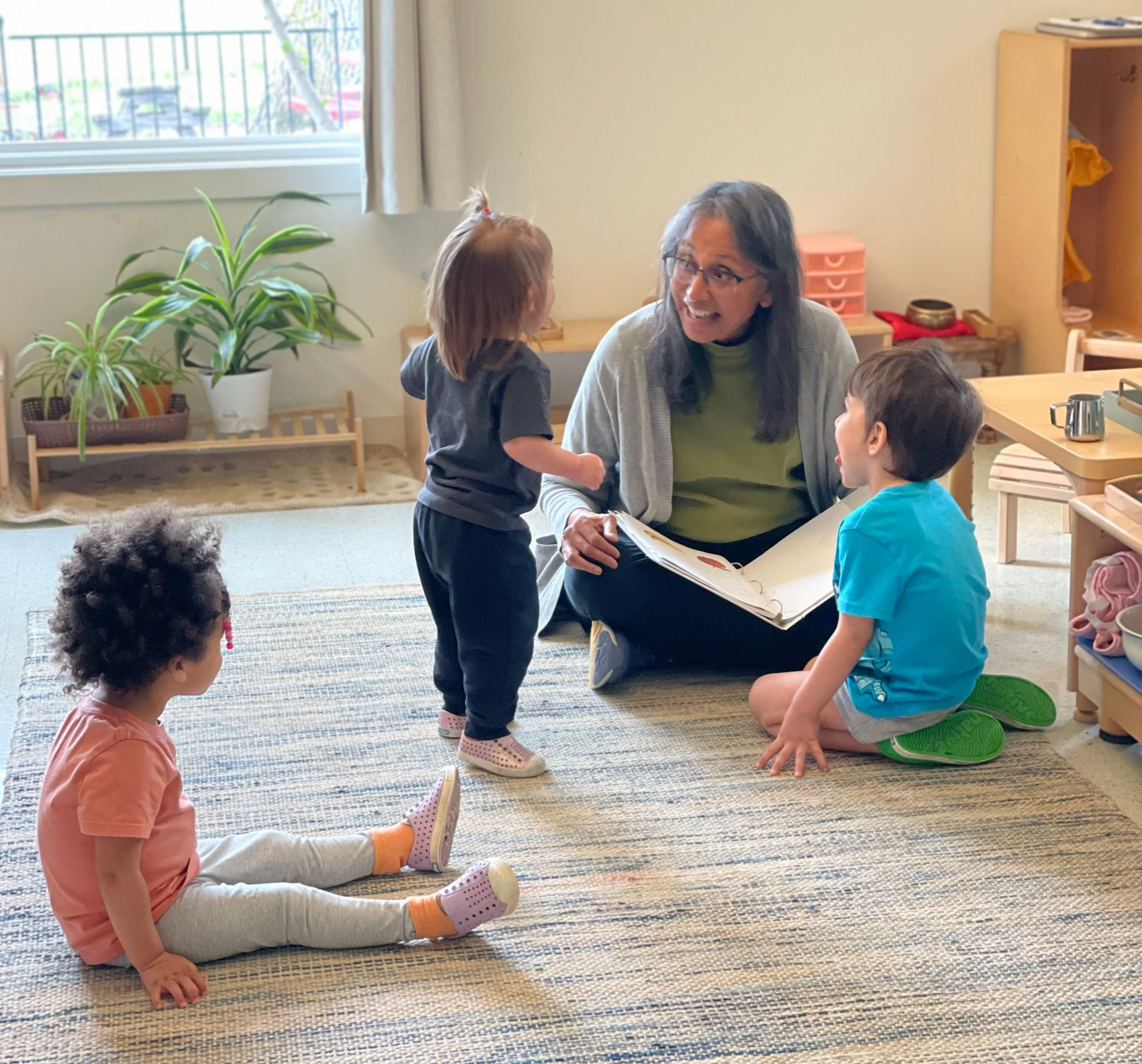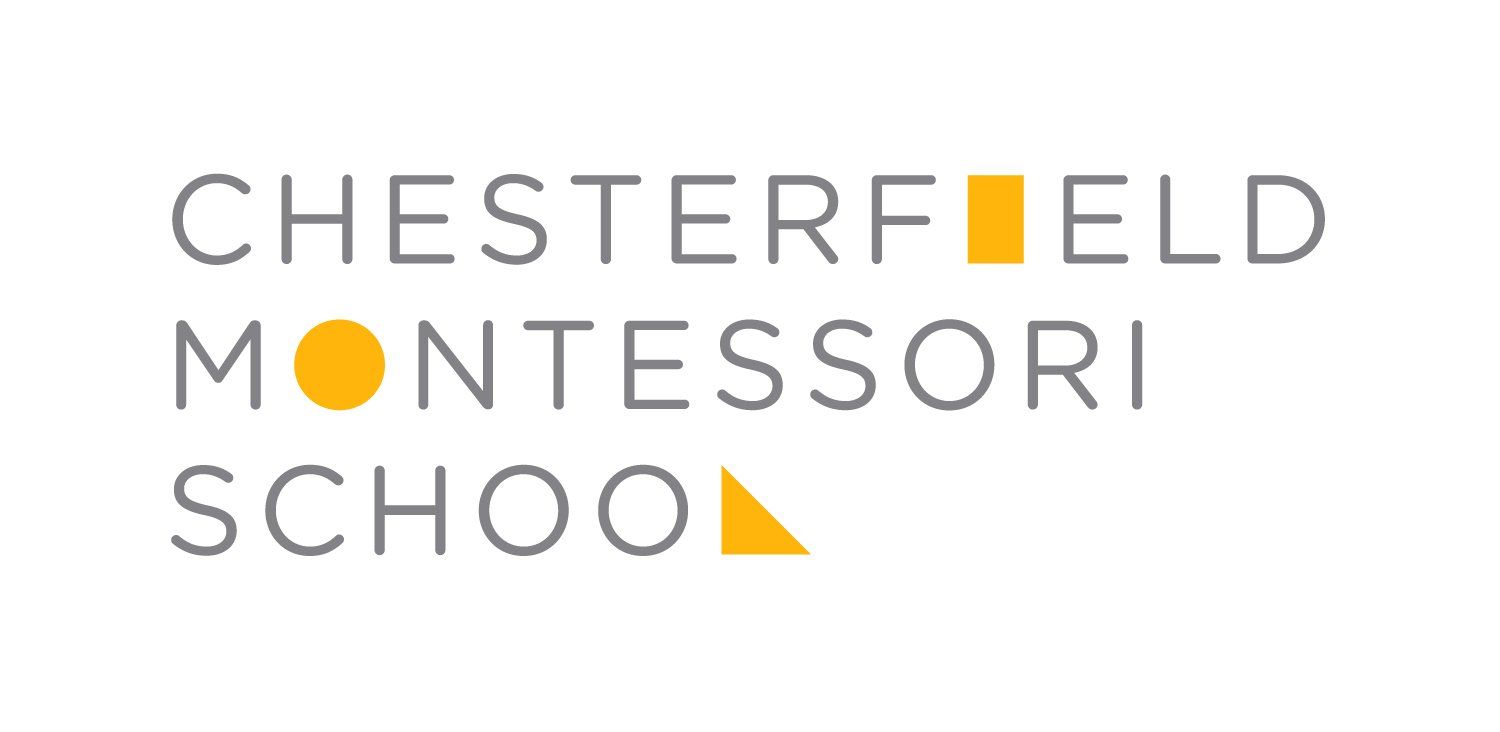Like all CMS students, Elementary students have individualized lesson plans. At the Elementary level, children experience more freedom to pursue their intellectual interests—within appropriate limits.
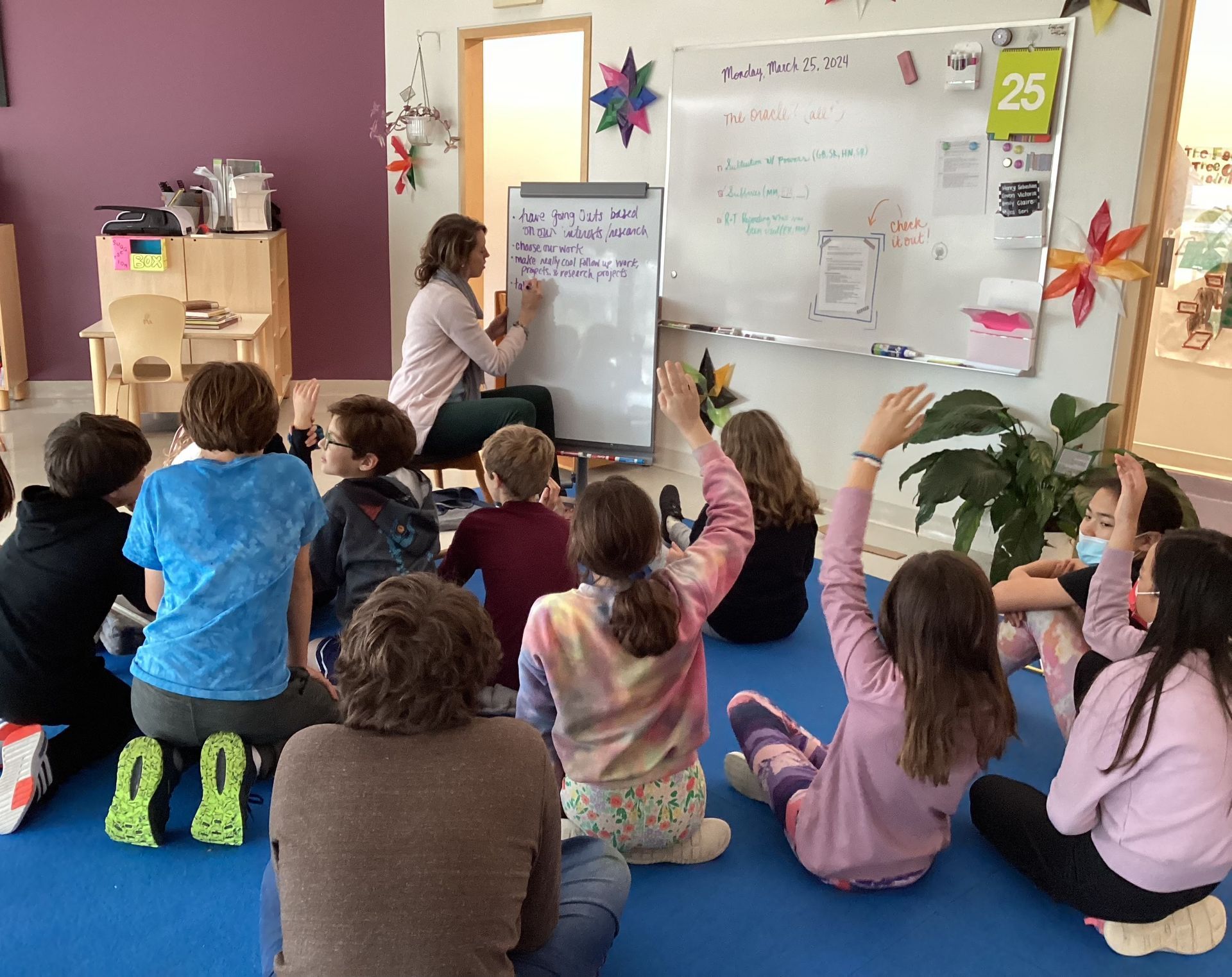
Trained Elementary guides are constantly assessing each child’s unique developmental trajectory and academic progress, and adjusting their lesson plans and levels of freedom as needed. This balance of freedom and responsibility has the following advantages:
- Building resilience and capacity – children learn as they make mistakes, and build confidence in their resourcefulness. Children are exploring concepts, making choices, learning to prioritize and experiencing consequences — all of which enhances the development of new neural pathways and supports the formation of the prefrontal cortex.
- Enhancing academic progress while also preserving love of learning – rather than simply memorizing facts, completing worksheets and striving for the “correct” answer, CMS children are fully engaged in the excitement of discovery and answering big questions that lead to more questions. All of this may be why CMS alums go on to have amazing academic experiences in secondary school, college and life!
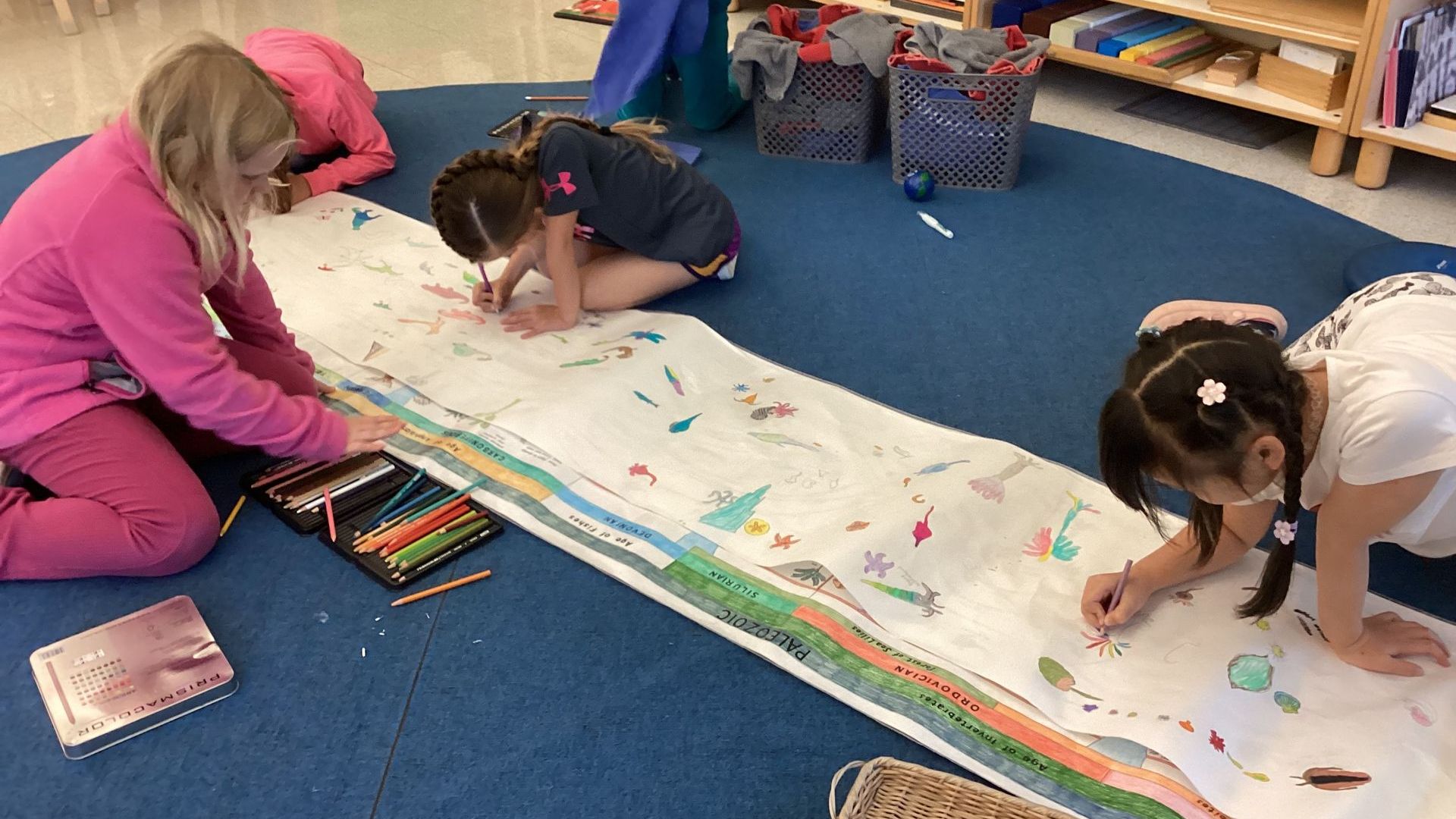
Homework at CMS
Other than reading, reviewing math facts and engaging in practical life activities with their families, CMS Elementary children do not have formal homework assigned. This is because research shows that homework is not effective at this age and our children are already working hard all day! Even data in favor homework strongly encourages a limited amount of meaningful tasks over a plethora of busy work. Stanford University conducted a famous study on this subject in 2014, discovering that "too much homework is associated with greater stress . . . reductions in health . . .[and] less time for family, friends, and extracurricular pursuits".
The brain needs time to rest and integrate what they’ve learned at school. Instead, they have “follow-up” work, which is work that is student-chosen rather than assigned. After a guide gives a lesson, a student may choose to conduct deeper research on that topic independently or with a partner. The shelves are prepared with a plethora of books, encyclopedias and research materials relevant to the lesson given, ready for curious minds to explore. This follow-up period is where the real learning takes place. (Be on the lookout for a separate blog post with more info on follow-up work!)
Screen-Free Environment
Research clearly shows that frequent screen use at young ages harms children’s brains and has real consequences on physical and social development. Therefore, CMS Elementary students are not interfacing with screens until Upper Elementary, when they have limited, approved screen use for research (after consulting books) and learning coding. At school, our children are working with their hands, writing, reading, creating, exploring—and looking into other human eyes!
Interdisciplinary Approach
The CMS Elementary curriculum is interdisciplinary. The Lead Guides are trained to support the children’s holistic progress in all areas, including “specials” like music and art. For example, in Lower Elementary, children learn to play the tone bars and compose their own songs. They learn to notate these, as well as other songs they know, based on the degrees of the major school. Additionally, all classes sing as a group daily, including songs in unison and with multiple parts. Children will sometimes write songs about their lessons as a follow-up work.
Each of the subjects is interconnected and rooted in the Elementary “Great Stories,” which ignite children’s imagination and lead to incredible depth and breadth of study in all areas over the six-year cycle. Therefore, with exception of Latin/Literacy and PE, the Elementary students explore all subjects with their Lead Guide.
